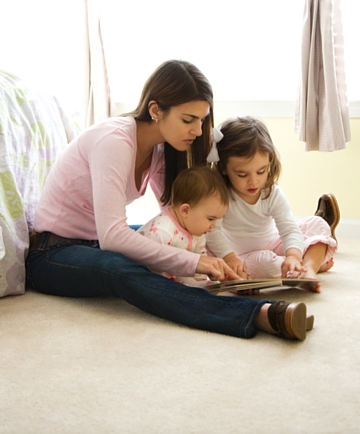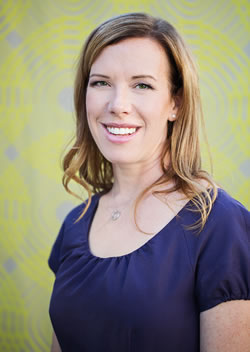Although the majority of women are capable of providing enough milk for twins, it doesn't always work out that way...here's one mom's story.
When I found out I was pregnant I knew I wanted to breastfeed. I didn't exactly know what that meant having twins but I was determined to have breastfed babies.
In my birthing class they spent a good amount of time covering breastfeeding. We learned that babies come into the world equipped to not have milk for a couple days as your milk is coming in. They do not require a ton of milk, as their stomachs are so very tiny. The basic concept of supply and demand also applies to breast milk. My doula also provided me with literature on breastfeeding twins and I watched numerous videos on tandem feeding and how to burp them both. I felt confidant and ready. Then I gave birth...to twins.
I was not prepared for the level of exhaustion I felt pushing 2 babies out nor was I prepared for what it really meant feeding two babies every 2 hours. Both boys had trouble latching on. One had a tongue-tie and the other kept testing positive for low blood sugar ending up in the NICU for about a day and a half. I couldn't tandem feed, in fact I couldn't even breastfeed my baby in the NICU at all because I was on another floor and feeding his brother. That stressed me out immensely and immediately started me on the path of guilt by motherhood knowing he was getting so much formula.
The lactation consultant at the hospital was great, she actually helped diagnose the tongue-tie and helped me pump colostrum to send up to the NICU. I went home from the hospital feeling a little better and with a renewed sense of resolve to keep on breastfeeding. It immediately went downhill once we got home. Breastfeeding just wasn't working. They were still having issues latching, they were both losing more weight than their doctor was happy with and I was beyond stressed out. I tried to increase my supply, by drinking tea, taking herbs, eating lactation cookies a friend made for me but I knew it wasn't enough.
So, I made an appointment with a lactation consultant at The Pump Station & Nurtury® and she was amazing. After an examination and watching me feed the boys she gave me some tips on positioning, however, after weighing them, told me it was clear I wasn't producing enough for 2 babies. It was nothing I was doing but the way I was built. "Some women's bodies make too much milk and some don't make enough," she said, "you need to supplement with formula." She also gave me information on a supplement that would help increase my supply and it did, nevertheless I would still need to supplement. But more importantly she took away the shame I felt in feeling like I could not provide a natural method of feeding my babies. Instead helping me see I should be grateful we live in a time where there are alternatives to help mothers like myself. So for a year I breastfed and formula fed my boys. Looking back I wish I could have given myself a break, I was a new mom, with twins, doing the best I could.
So, I try to pay it forward to expecting moms in my class. I always tell them "get ready because people are going to ask you if you breastfeed. It is probably the number 1 inappropriate twin question other than are they natural." Sometimes they ask out of curiosity wondering how you do it with two and other times there is judgment in their question. Either way, I make sure to tell moms to be, own your answer and be confident in the knowledge you are doing what is best for your babies. And instead of us women judging or having a negative opinion of mother's using formula lets put our energy in supporting our fellow twin moms and moms in general.
 Kelli Venaas, RN, IBCLC, a registered nurse and lactation consultant also a fellow twin mom to identical twin boys, teaches a Breastfeeding Multiples class at The Pump Station & Nurtury®. She has given us her top Kelli Venaas, RN, IBCLC, a registered nurse and lactation consultant also a fellow twin mom to identical twin boys, teaches a Breastfeeding Multiples class at The Pump Station & Nurtury®. She has given us her top
4 tips on breastfeeding multiples:
1. Make sure you have lots of help. I tell expectant parents in my classes to start during the last trimester lining up help from friends and family who are pro-breastfeeding. I recommend daily help for the first month at least. That means someone comes over to give you a shower break, do your dishes, bring you lunch, or give you a nap while they hold the babies every day, even if just for one hour.
2. GET REST. Every day you need as many catnaps as you can get. If you aren't good at taking short naps, then make sure you lie down several times a day with your feet up. Go to bed early when the babies take their longest stretch of sleep, and see if your partner can help with at least one nighttime feeding. Partners can help by getting the babies diapered and swaddled after you feed them, and you can get back to sleep immediately while he/she is settling the babies.
3. Attempt simultaneous (aka tandem) nursing as soon as possible. The extremely rigorous feeding schedule of 2 newborns becomes much less daunting when you can satisfy them both at the same time. You will spend much, much less time breastfeeding and have a little more time for yourself in between feedings. It takes some practice and an extra pair of hands in the beginning, but keep trying at least once every day.
4. Seek the help and advice of a professional lactation consultant at the very first sign of a problem. Do not wait until your nipples are bleeding or your milk is barely there to call someone. There is no shame in admitting you're having trouble, because with breastfeeding multiples it would be quite a miracle to encounter no issues at all. Even if it's just a gut feeling that something isn't quite right, make the call. Even a brand new mom has that innate sense of her babies' well being, and her gut is usually right.
________________________________________________________________________________________
Kate DiRienzo-Payne has experience working in the childcare industry as a caregiver and also in the pre-schools. Over two and a half years ago she began her journey of becoming a mom to multiples. Living far from her family, meant she and her husband were going to be traveling the road to twins without the close-by support of their families. She set out on learning everything thing there is to know about twins by taking classes, reading books, testing products, and speaking with other twin moms. Along with raising two happy, healthy, adventurous twin boys, she is focused on bringing other twin moms in the Los Angeles area together to give each other the support and TLC they need. She teaches Expecting Multiples Baby Care class at our Pump Station & Nurtury® - Hollywood Store.
|
 1. Serenity Star by Aden + Anais Buy now...
1. Serenity Star by Aden + Anais Buy now... 2. Sound Oasis: Sleep Sound Therapy System Buy now...
2. Sound Oasis: Sleep Sound Therapy System Buy now... 4. Nighty Night Owl "On the Go" by Cloud b Buy now...
4. Nighty Night Owl "On the Go" by Cloud b Buy now... 6. Swaddle blanket: Aden + Anais Buy now...
6. Swaddle blanket: Aden + Anais Buy now... 7. Swaddle blanket: Woombie Buy now...
7. Swaddle blanket: Woombie Buy now... 8. Swaddle Blanket: Miracle Blanket Buy now...
8. Swaddle Blanket: Miracle Blanket Buy now... 9. Sleep sacks: Aden + Anais Sleep Sack Buy now...
9. Sleep sacks: Aden + Anais Sleep Sack Buy now...
 by
by 

















